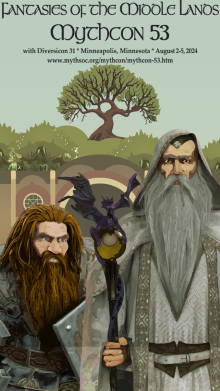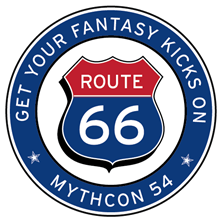Loading...
Location
Minneapolis, Minnesota
Document Type
Presentation
Event Website
https://www.mythsoc.org/mythcon/mythcon-53.htm
Start Date
4-8-2024 2:30 PM
End Date
4-8-2024 3:20 PM
Description
It is well-known that Tolkien saturated his works with his love of language, so it is worthwhile to reflect on the particular ways that he loved language. Tolkien especially loved languages of the past, and the past of languages, and he especially loved the esthetics of language: the sounds themselves, and the match between sound and meaning. He was thus searching for the beauty that could still be perceived in what was lost in language, a position like that of the Beowulf poet gazing from the top of his tower at the sea of fading paganism. This position can be understood psychologically as one of beckoning for preverbal experience across the gap that is created by language. Lacan recognized that after we develop language our earlier experience is lost to awareness, leaving us longing for what we had but do not know, which if we do experience it brings jouissance, madness or overpowering joy—think eucatastrophe and enchantment. Kristeva realized that these early experiences are not completely suppressed by language but enter it via tone and musicality, Tolkien’s own special emphasis and desire. Tolkien’s longing for and partial integration of the preverbal with language was likely accentuated by his leaving South Africa and his father when he was three years old, about the time that language ability typically solidifies. By so saturating his works with his particular feeling for language, Tolkien keyed into this central psychological anguish and desire that is part of life for all of us. By highlighting and partially fulfilling this anguish and desire, he touched the essence of enchantment.
Creative Commons License

This work is licensed under a Creative Commons Attribution-NonCommercial-No Derivative Works 4.0 International License.
Included in
J.R.R. Tolkien and the Essence of Enchantment
Minneapolis, Minnesota
It is well-known that Tolkien saturated his works with his love of language, so it is worthwhile to reflect on the particular ways that he loved language. Tolkien especially loved languages of the past, and the past of languages, and he especially loved the esthetics of language: the sounds themselves, and the match between sound and meaning. He was thus searching for the beauty that could still be perceived in what was lost in language, a position like that of the Beowulf poet gazing from the top of his tower at the sea of fading paganism. This position can be understood psychologically as one of beckoning for preverbal experience across the gap that is created by language. Lacan recognized that after we develop language our earlier experience is lost to awareness, leaving us longing for what we had but do not know, which if we do experience it brings jouissance, madness or overpowering joy—think eucatastrophe and enchantment. Kristeva realized that these early experiences are not completely suppressed by language but enter it via tone and musicality, Tolkien’s own special emphasis and desire. Tolkien’s longing for and partial integration of the preverbal with language was likely accentuated by his leaving South Africa and his father when he was three years old, about the time that language ability typically solidifies. By so saturating his works with his particular feeling for language, Tolkien keyed into this central psychological anguish and desire that is part of life for all of us. By highlighting and partially fulfilling this anguish and desire, he touched the essence of enchantment.
https://dc.swosu.edu/mythcon/mc53/schedule/45


